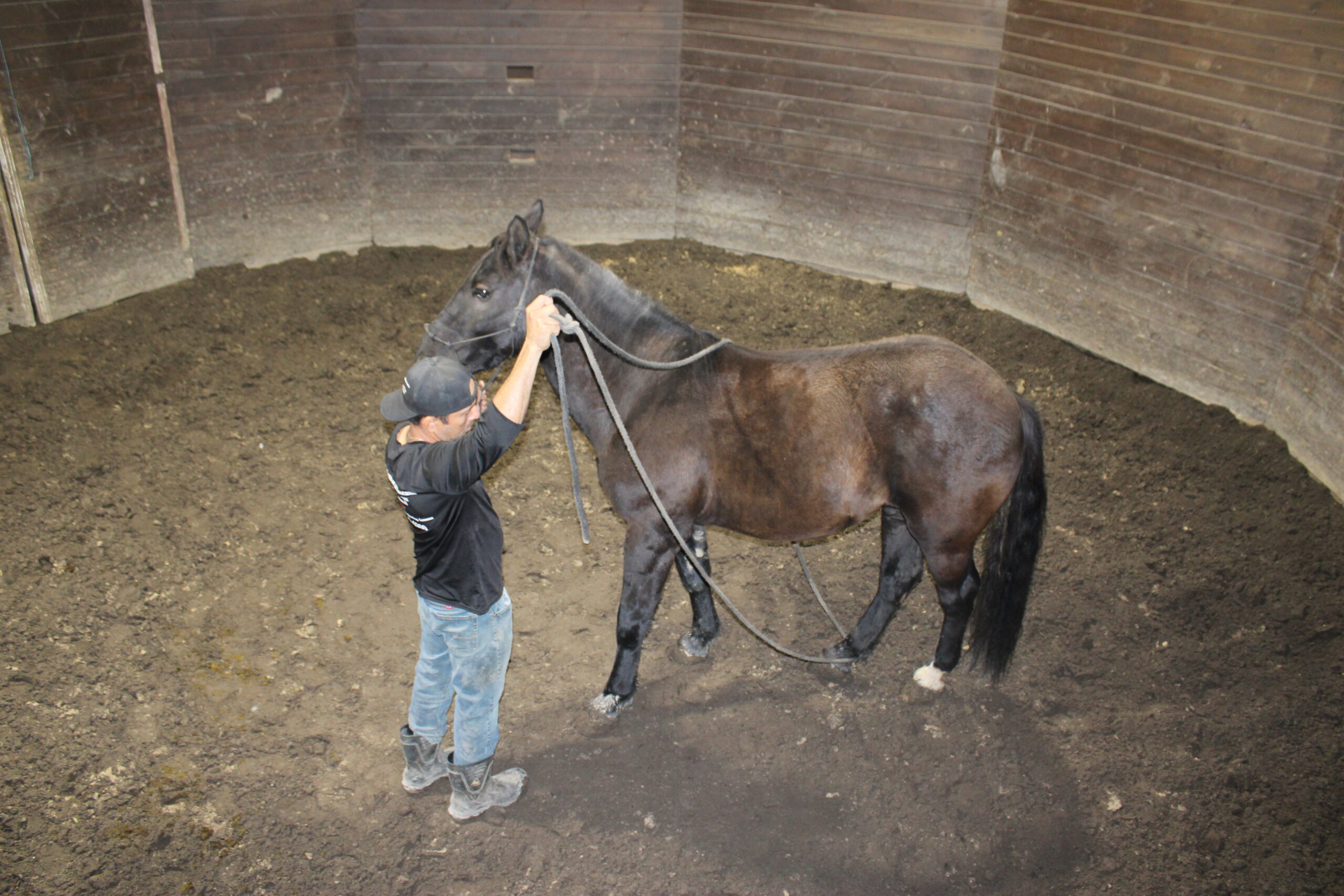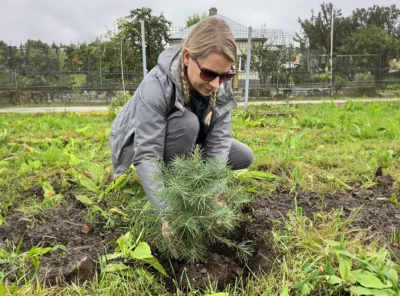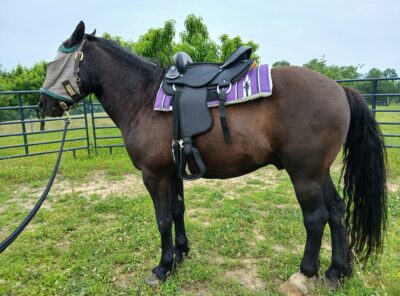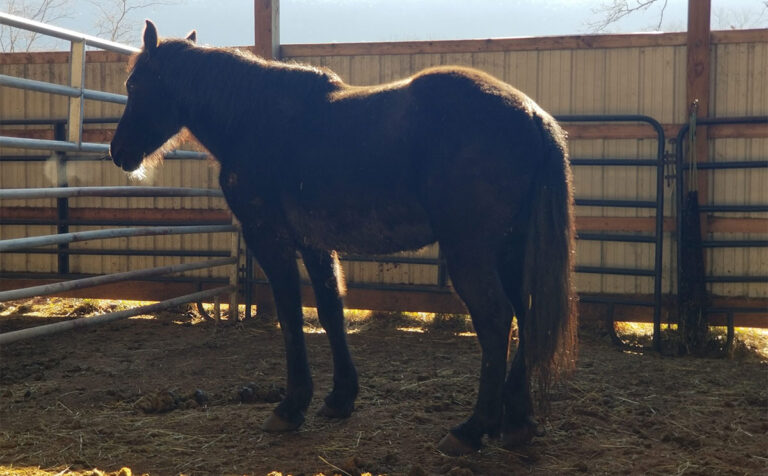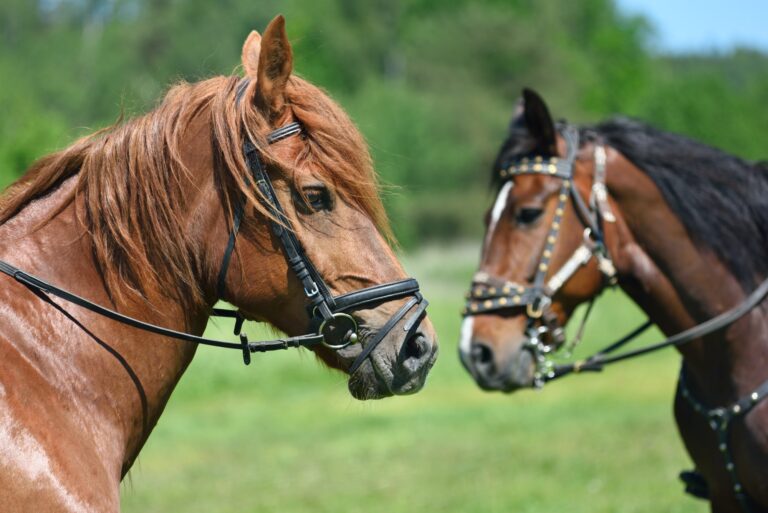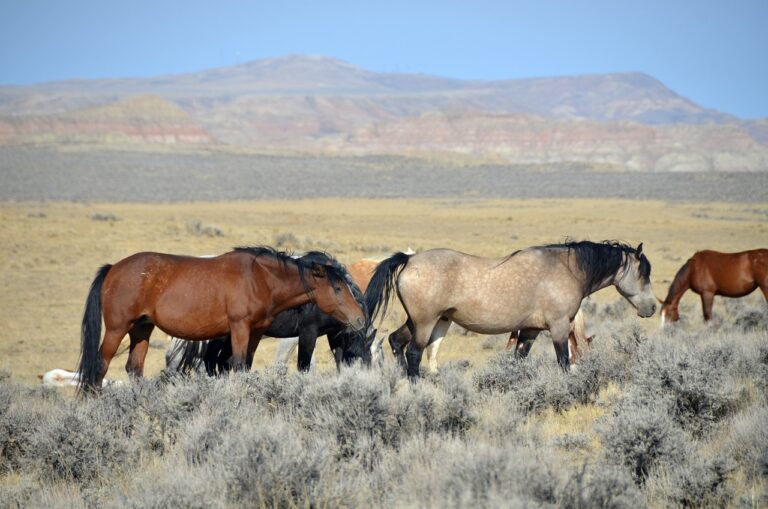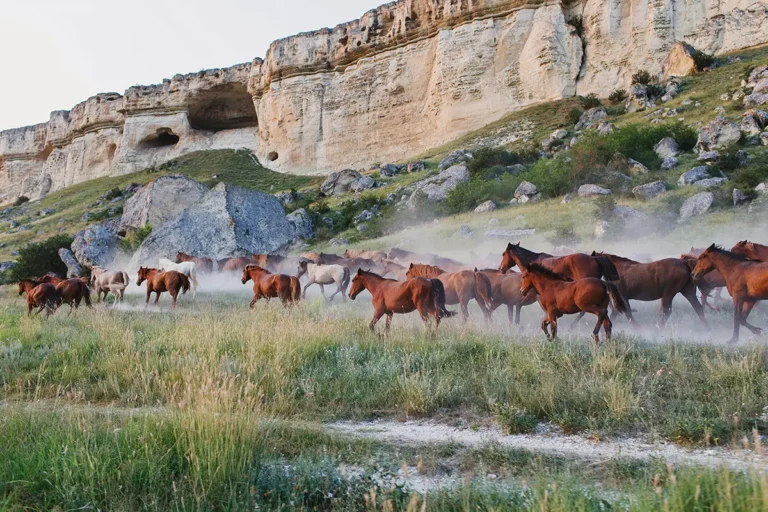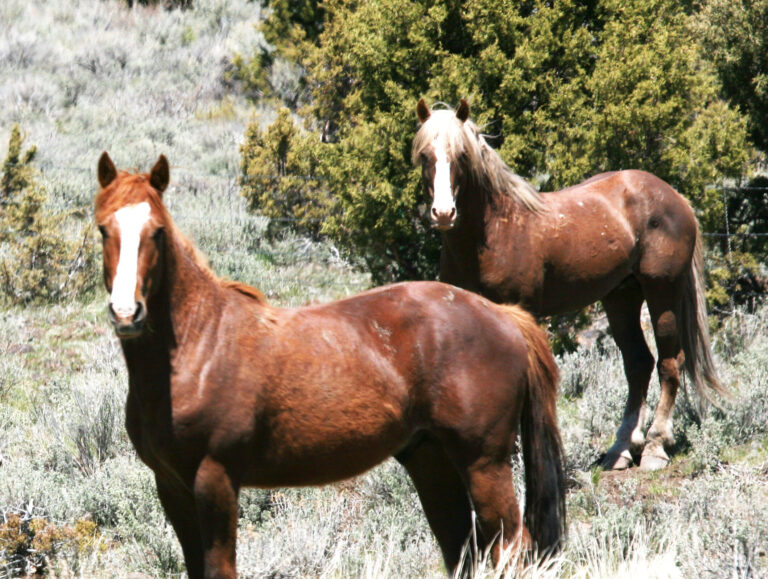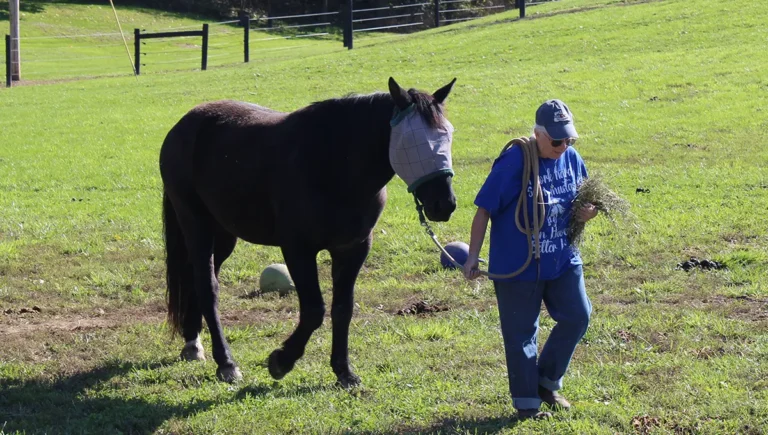Gentling Wild Mustangs: Small Braveries that Build Trust
Gentling wild mustangs can seem like it is all about those big days – the first ride, the first trail mile, the first time a horse loads like a seasoned ranch gelding and you do not have to hold your breath. These are the days with horses that look big from the outside: The first ride. The first trail mile. The first time a horse loads like a seasoned ranch gelding and you do not have to hold your breath. Those days make great photos.
Gentling wild mustangs is not about big, fast progress for me. It is about showing up day after day and letting two very different horses tell me what they need.
Most of my life with Floki and Lagertha does not look like that. It is made of quiet, unphotogenic moments that no one else would notice. The kind of moments that would scroll right past on social media, but stay with me for days. I call them the small braveries. They are why I keep showing up. They are why I still believe two wild born mustangs can carry me across a continent.
Floki, Jimmy, and the first real touch
When Floki first came home, he moved like a horse who thought the world might kill him. People at the gather had called him “stubborn.” I understood why. When he froze, he froze hard. When he pulled away, he pulled with all of himself, as if his life depended on it. At times he felt almost suicidally afraid, like he would rather go through a panel than stand still and think. If you are not familiar with how horses like Floki and Lagertha end up in people’s barns at all, the BLM Wild Horse and Burro Program explains how they are gathered and adopted from public lands.
We reached an impasse. He would allow me in his stall to clean or to sit with him while he ate alfalfa. I could be there, but not close. If I drifted in a little too far, he would bolt from one end of the stall to the other. One time he stomped a hind foot when he thought I got too close with the muck fork. It was fast and sharp and honest. I startled, then heard myself say, “No. I have been good to you.” For a second or two his whole body stayed tight. Then he settled. He let me finish mucking. It was not a Hallmark moment, but it was the first time I felt him hear my voice as more than just noise.
Still, I felt like we were stuck. When my friend Jimmy asked if he could help, I agreed. For two weeks we worked on getting Floki gentled. Step by step. No shortcuts. Finally, one day, Jimmy had a halter on him. We both knew Floki could still explode at any time, so Jimmy started with a dressage stick. He stood at a safe distance and rubbed Floki’s neck and shoulders with the end of the stick. When Floki stayed with him, he slowly moved his hand up the stick, inch by inch, until he was able to touch Floki with his hand.
He rubbed Floki’s face for a few minutes. No drama. Just quiet circles on a tense black cheek. Then Jimmy turned and handed the lead rope to me. I moved in, slow and soft, and laid my hand on Floki’s face. His skin did not flinch away. I stroked his cheek, then leaned in and kissed his nose, and started to cry. Not noisy, not pretty. Just silent tears because it had taken so long to get there and, suddenly, my love for my black dragon was too big to hold in.
I stood there with my forehead pressed against the bridge of his nose and my hands on his cheeks. We stayed like that for a few minutes. Then I slipped the halter off, gave him some alfalfa, and let him think and rest.
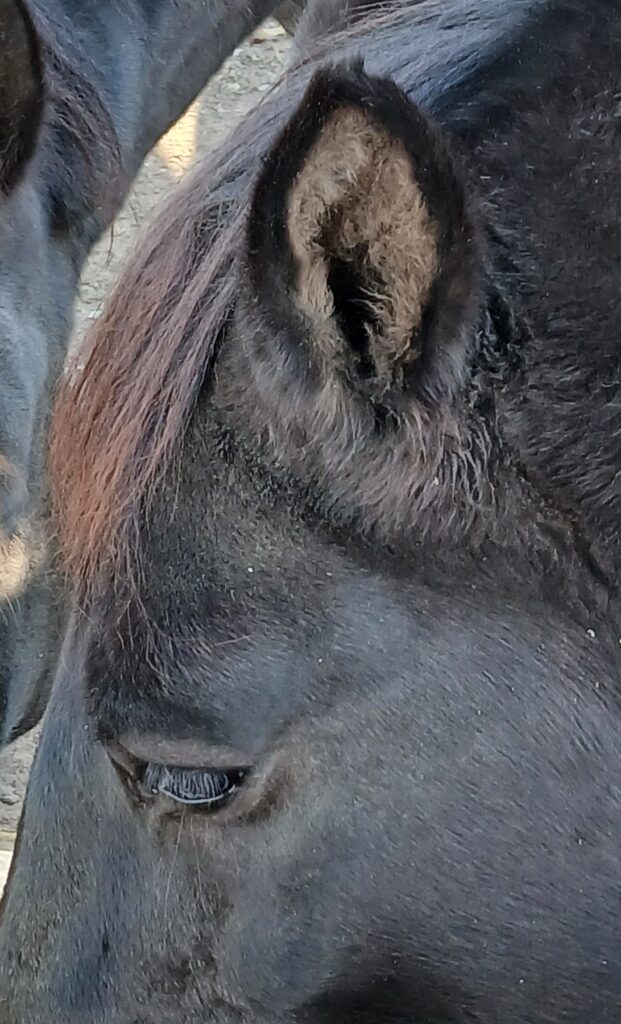
If you had been watching from the barn aisle, you might have seen a woman standing in a stall, hugging a horse. Nothing more. But that day Floki let a human touch his face and did not run from it. After everything that had come before, that was a crack in a very old wall.
That was a small bravery. Moments like that are why I believe gentling wild mustangs has to start with listening, even when you feel stuck or behind.
Lagertha’s first thank you
Lagertha is a different kind of horse. Where Floki burns hot, she thinks. If Floki is the dragon, Lagertha is the shieldmaiden who stands on the hill and watches everything before she moves. The wind. The neighbor’s dog. The way I am carrying the halter that morning. None of it is lost on her.
When Jimmy moved across the country, I started looking for another trainer. I wanted help for Lagertha. I wanted to give her every chance. The man who took over for Jimmy seemed fine at first. On the second day, I drove out to the facility and found him in the round pen with Lagertha. He was hitting her between the eyes with a broken dressage stick while he scrolled his phone with the other hand. She was lifting and twisting her head to avoid the blows as best she could. The broken end of the whip had a nylon core sticking out. I could just imagine him putting out an eye.
I told him to stop hitting her in the face. I do not think I was very nice about it, but I would do it again. He did stop that, but when I went up to the observation deck, he picked up the lunge whip and began to lunge her. He was lashing her on every single stride. When the whip wrapped around her back legs and she kicked out, he put every ounce of weight and anger into the next whip. I came back down from the observation deck and made him stop for good.
I drove home, hooked up the trailer, drove back, and took Lagertha out of there. When we got back home, she stepped off the trailer and went straight to the water. She drank deep. It made me wonder if she had even been given water while she was there. When she finished drinking, she walked over to me and took an apology carrot. Then she did something she had never done before. She pressed her chin into my hand. She chose contact.
If you had been standing by the fence it would have looked like a mare having a snack. To me it felt like she was saying, in the only way she could, “Thank you for taking me out of there.” That little lean of her chin into my palm was a small bravery too. She had every reason to turn away from my kind, yet she reached out instead.
Standing between Lagertha and harm, again
After that, I knew I wanted to do things differently for Lagertha. I wanted to try more +R, more positive reinforcement, because I believed that style would fit her thoughtful, sensitive mind better. The next trainer was better in one sense. She did not hit Lagertha. She did not even touch her very much. But there are other ways to be cruel, even when you think you are being kind.
It was a day with no shade in the round pen and the temperature over ninety. Lagertha was on Zyrtec for her bug allergies, which can increase the risk of anhidrosis. I told the trainer we could not overwork her and that we had to watch for signs she was not sweating enough. I had to explain what anhidrosis was. It is the reduced or complete loss of a horse’s ability to sweat, and it can be very dangerous in heat. The University of Florida equine extension has a good plain language overview of anhidrosis in horses for anyone who is not familiar with it.
The trainer said she understood and would not overwork Lagertha. At first it looked fine, but after about half an hour it became clear that she was not reading the signals Lagertha was throwing. I carried a bucket of water into the round pen and stopped the action. Lagertha drank down most of two buckets. That alone told me we had already gone too far. I said we needed to stop. The trainer answered, “Just let me get one little concession out of her and we will stop.”
I refilled the bucket and told her not to run Lagertha. She agreed in words, but she kept the mare moving at a brisk trot. Every time Lagertha went past the bucket, she tilted toward it and asked to stop. The trainer did not notice until several strides later. By then the moment was gone. I repeated several times that we needed to stop because it was too hot and I could see that Lagertha had gone into survival mode. She was no longer looking for understanding. She was simply trying to endure.
Finally, I stepped between the trainer and my horse and opened a path out of the round pen for Lagertha. She walked past the trainer and out with me. When the trainer left for the day, I went back into the pasture. Lagertha came up to me and pressed her cheek against my hand for a moment. There was no big scene. No rearing. No running loose. Just that quiet cheek, resting on my palm, like she was thanking me again for standing up for her.
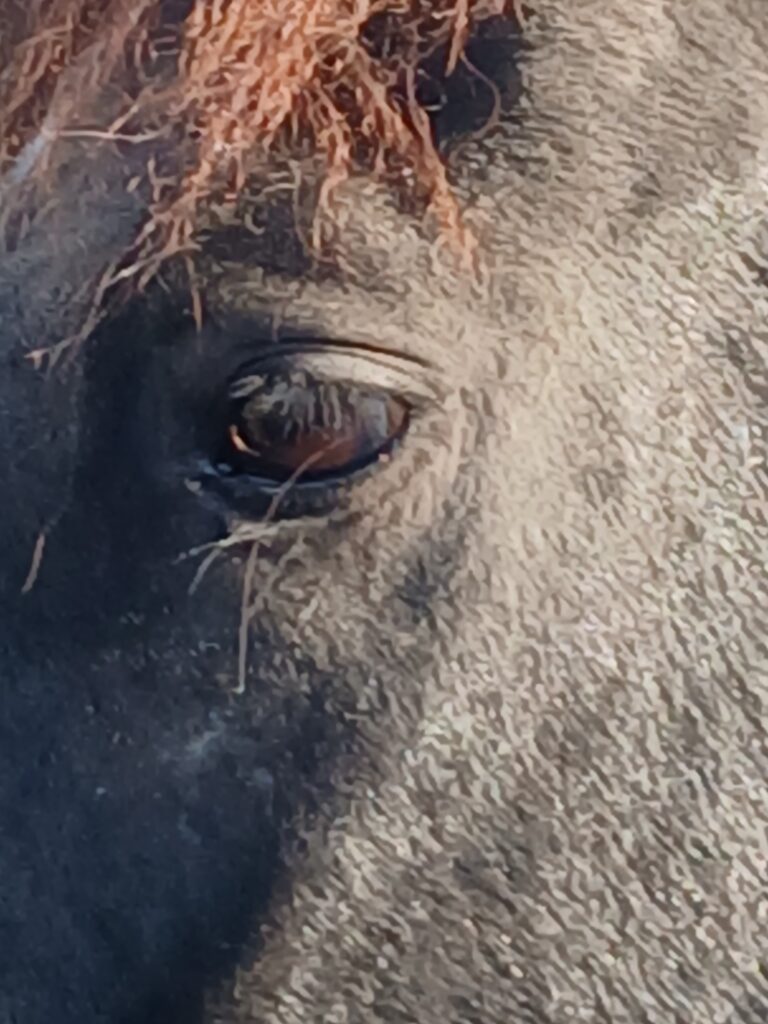
These were small things, yet they felt huge. They were her way of saying, “You heard me. You chose me.” I don’t know if she understands how hard it is for me to stand up to any kind of authority figure. I am learning to grow more of a spine for her sake. I want to stop these things before they reach the point where my horse feels such relief that she has to thank me afterward. I love that she did thank me. I don’t love that it ever needed to happen.
Her courage to reach for me, even after people had hurt her in my name, is a small bravery I carry with me.
The progress that does not look like progress
Here is the hard part. Small braveries never feel like enough when you are watching everyone else. Online you see the mustang that went from untouched to ridden in thirty days, in a week, in mere days. You see the perfect liberty circle, the bridleless ride, the horse that hops into a trailer like it has been doing it for twenty years. When that is what you see all day, it is easy to look at your own quiet pen and think, “My horse and I are failing.”
We are not. Most real progress with real horses is not dramatic. Especially with horses like Floki and Lagertha who had to survive before they ever met us.
Progress looks like:
- A horse who used to bolt now taking one breath before he decides.
- A mare who used to hold herself tight now licking and chewing when you step back.
- A session that used to end in frustration now ending with everyone walking away calm.
- A black dragon who lets you press your forehead against his nose.
- A shieldmaiden who leans her chin and then her cheek into your hand.
If my only measure of success is the big public moment, I will miss the whole story.
Why the small things matter when gentling wild mustangs
There is a day coming when I will ask Floki and Lagertha to leave everything they know and walk into a long trail life with me. If you are new here and want to know what that long ride looks like, you can read our Start Here page about Fading Hoofbeats.
New camps. New water. New fences. New people. New weather. Thousands of miles of “new.” When that day comes, all the fancy training in the world will not matter if they do not believe me when I say, “You are safe with me.” That belief is not built on big days. It is not built on the first ride or the pretty picture. It is built on the hundred little times I listened when they were unsure.
- The days I slowed down when Floki needed to think instead of forcing him to push through.
- The days I took Lagertha out of situations that hurt her body or her mind.
- The days I quit while we were still okay instead of chasing one more repetition.
Every small bravery is a brick in the road to that future camp.
For the readers who feel behind
If you are reading this and thinking about your own horse, I want to tell you something that I have to remind myself of often. You are not behind because your victories are small. You are building something that will hold weight later. If you are gentling wild mustangs, or even just one mustang in your backyard, your quiet wins matter more than any thirty day makeover.
If today’s win is that your horse:
- Stood still for three extra seconds.
- Took the treat without pinning his ears.
- Let you stroke his neck one inch farther than yesterday.
- Walked away from the scary thing instead of exploding.
- Chose to reach out a nose, a chin, or a cheek to your hand.
That counts. Write it down. Tell someone who understands. Hold on to it for the bad days when nothing seems to work. Small braveries are easy to overlook, but they are the reason any of us ever get to the big moments at all.
A quiet invitation
I am still in the middle of this with Floki and Lagertha. We are a long way from the Mexican border and even farther from the Canadian one. Most of our work happens when nobody is watching. I think that is true for most of us.
If you want to, I would love to hear about your own small braveries with your horses. The moments that would never go viral, but changed everything for you. Those are the stories that keep me going on the days when progress feels slow and the world feels loud. Because in the end, it is not the shiny days that make Fading Hoofbeats real. It is the quiet ones. The ones where a terrified dragon lets you touch his face, and a thoughtful shieldmaiden leans her weight into your hand in thanks.

